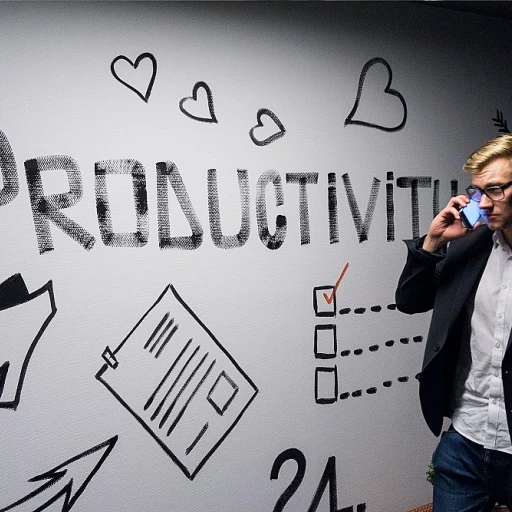Understanding the Challenges in Collections
Identifying Obstacles in the Collections Sector
The debt collection industry presents a unique array of challenges that significantly impact employee retention. Recognizing these challenges is the first step in developing effective retention strategies before diving into enhancing professional development or rewarding performance.
One primary issue is the high-pressure work environment inherent in collections. Employees often face demanding targets and may deal with contentious interactions, leading to stress and burnout. When employees feel overwhelmed by the pressure, they are more likely to consider leaving their job.
Another factor contributing to high turnover rates in collections is the lack of balance between work and personal life. The demands of the role can make it difficult for employees to maintain a healthy work life balance, ultimately impacting their job satisfaction. Remote work options and flexible arrangements can be beneficial strategies to help employees manage this balance and stay engaged with their work.
Furthermore, a lack of growth opportunities within the organization can deter employees from committing to the company long term. It's crucial for businesses to offer career advancement paths and professional development opportunities so employees feel their growth is supported.
Lastly, the collections industry sometimes struggles with fostering a positive company culture. A supportive and inclusive work environment can improve employee engagement and retention, as workers who feel valued and appreciated are more likely to remain loyal to their team and organization.
Understanding these challenges is vital for creating a culture and environment that supports employee retention and engagement. Explore how a contingent job offer might impact employee retention strategies at this
blog post to further enrich your retention planning.
Creating a Positive Work Environment
Building a Supportive and Inclusive Culture
Creating a positive work environment in collections can significantly impact employee retention. By fostering a culture that values support and inclusivity, organizations can help employees feel more connected and engaged with their work. This, in turn, can reduce employee turnover and build a more cohesive team.
- Prioritize Employee Engagement: Focusing on employee engagement is essential for creating a positive atmosphere. Encouraging open communication and regular feedback can help employees feel heard and valued. Engaged employees are more likely to remain with the company long-term.
- Cultivate a Positive Company Culture: A strong and positive company culture is a powerful tool for retaining employees. Promote values that emphasize collaboration, respect, and diversity within the workplace. By doing so, employees are more likely to feel a sense of belonging and commitment to the organization.
- Highlight the Importance of Well-being: Providing a supportive work environment also extends to valuing employees' mental and physical well-being. Promote a healthy work-life balance through benefits such as remote work options or flexible hours. This approach can enhance job satisfaction and help employees stay with the company.
- Offer Team-building Opportunities: Boost employee morale and strengthen team dynamics by organizing team-building activities. These can range from informal gatherings to structured workshops aimed at improving collaboration and communication among team members. Such activities foster a sense of unity and belonging.
For further insights on reducing employee turnover in debt collection and other sectors, explore this
comprehensive guide on effective strategies for reducing employee turnover. It's an excellent resource for any company looking to implement successful retention strategies and maintain a motivated workforce.
Training and Development Opportunities
Fostering Skill Growth and Professional Development
In collections, understanding the importance of skill enhancement is crucial in retaining employees. Providing training and development opportunities is a powerful strategy that speaks volumes about the organization’s commitment to its people. This approach not only strengthens employee engagement but also builds a resilient team adept at managing the challenges unique to debt collection.
Companies should focus on continuous learning and offer workshops and seminars that help employees expand their expertise in core job functions. Encouraging employees to participate in industry conferences and webinars can also be beneficial. This not only improves job satisfaction but fosters a dynamic work environment where growth is celebrated.
To ensure employees feel valued and motivated to grow with the organization, consider offering:
- Tailored development plans that align with individual career goals and the company’s objectives.
- Mentorship programs that connect employees with experienced professionals who can guide them on their career paths.
- Access to e-learning platforms providing courses relevant to job roles and competencies.
These initiatives demonstrate that the organization values long-term employee development, which, in turn, can lead to reduced turnover rates. Moreover, by promoting a culture of learning, companies can create a positive work environment where employees feel invested in their future. For insights on creating impactful development programs, consider exploring this guide on
enhancing employee retention through career development.
Implementing Flexible Work Arrangements
Adapting Work Arrangements for Better Retention
The modern workforce is transforming rapidly, and adapting to flexible work arrangements is a powerful strategy for retaining employees in the collections field. With the growing need for work-life balance, the ability to tailor working hours or incorporate remote work options can significantly influence job satisfaction and employee retention.
Firstly, offering flexible work hours caters to varying personal circumstances. Employees who manage family commitments or pursue professional development opportunities outside regular hours appreciate the autonomy to adjust their schedules. This freedom results in happier employees who are less likely to leave the organization.
Moreover, the option to work remotely addresses the need for a conducive work environment that supports long-term employee happiness. By facilitating remote work, companies reduce time spent commuting, allowing employees to focus more on productive tasks – benefiting both the individual and the team.
Implementing flexible arrangements not only makes employees feel valued, but it also aids in reducing turnover rates within the debt collection sector. When individuals can better manage their work-life balance, they are more engaged and motivated, influencing their overall performance positively.
To successfully incorporate such strategies, organizations should:
- Communicate openly: Solicit feedback on preferred work arrangements to tailor policies that meet employees’ needs and company objectives.
- Develop proper guidelines: Ensure clear guidelines are in place to maintain productivity and engagement, regardless of location or hours worked.
- Foster a supportive culture: Acknowledge diverse work preferences to create a thriving company culture that champions flexibility and inclusivity.
By recognizing the importance of flexibility in the modern workplace, collection companies can maintain a competitive edge, helping employees stay motivated, engaged, and committed to their roles.
Acknowledging Efforts and Celebrating Successes
Recognizing and rewarding performance is pivotal in fostering employee retention within your collections department. When employees feel valued and acknowledged for their efforts, they are more likely to remain engaged and committed to the company.
Incorporating a robust recognition program as part of your retention strategy can significantly decrease turnover rates and nurture a positive work environment. Here are some effective tactics:
- Personalized Recognition: Take the time to understand what motivates each individual on your team. While some employees appreciate public acknowledgment, others may prefer a private appreciation email. Tailoring recognition to personal preferences can greatly enhance job satisfaction.
- Performance-Based Incentives: Offer rewards not just for longevity but also for meeting or exceeding performance targets. This could encompass bonuses, gift vouchers, or additional time off. Such incentives can act as strong motivators to maintain high levels of productivity.
- Real-Time Feedback: Regularly provide constructive feedback and appreciation in real time. This supportive, continuous dialogue helps reinforce positive behaviors and lets employees know their contributions are valued.
- Team Celebrations: Foster a sense of community and camaraderie by celebrating team achievements. Whether through organized events or informal gatherings, acknowledging collective successes can enhance team bonding and strengthen company culture.
By recognizing and rewarding performance effectively, organizations will not only enhance employee engagement and work environment but also cultivate a culture of appreciation and achievement. This commitment to honoring employee contributions is a tried-and-true strategy that will help employees stay and thrive in the long term.
Providing Career Advancement Paths
Pathways for Career Growth and Development
When aiming to improve employee retention, especially in collections, carving out clear paths for career growth is pivotal. Employees value opportunities that allow them to advance professionally, thereby enhancing their job satisfaction and promoting long-term commitment to the organization.
Creating defined career trajectories helps employees envision their future with the company. It offers them a sense of purpose and direction in their daily roles, making them more likely to stay. This solidifies their belief that the company is invested in their personal and professional development, fostering a positive work environment.
- Structured Development Programs: Implement structured programs that align with employees' individual career goals. This could involve mentorship opportunities, advanced training, or role-specific certifications that elevate their skills within the collections field.
- Regular Feedback and Reviews: Continuous feedback forms a core part of career advancement. Regular performance reviews provide insights into employees' strengths and areas for improvement while opening doors for promotion discussions or additional responsibilities.
- Promotion of Internal Mobility: Encourage a culture where moving between roles within the company is not only possible, but welcomed. This strategy decreases turnover rates by offering a way for employees to find new challenges without leaving the organization.
Mandatory training that expands employees' skill sets beyond their current roles enhances their engagement and shows the organization's commitment to their professional journey. Emphasizing career advancement underscores an employee retention strategy focused on growth, satisfaction, and retention in the demanding field of collections.








